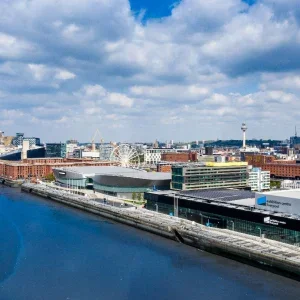The six-lane highway, which is due to be completed in 2018, will include a 5.4km-long viaduct off the coast of the island, in the Indian Ocean, designed to withstand cyclones and waves up to 10m high. The project is being completed by the French consortium Bouygues Travaux Publics, Vinci Construction Grands Projets, Dodin Campenon Bernard, and Demathieu Bard Construction.
The crane, which is being supplied by Enerpac, comprises two pairs of lifting traverses with a total width of 30m and has a load-bearing capacity of 4,800t. It is used for lifting, moving, and lowering concrete blocks, and is designed to withstand the tropical marine environment.
The crane manoeuvres the concrete blocks using a reeving hoist system, based on eight grooved drum winches, with the longitudinal movement controlled using a roller trolley system with two roller trolleys per lifting traverse. Each roller trolley is powered by an engine with hydraulic drive and planetary gears. The wheels run on two parallel rails, which are mounted onto the runway beam on the barge, and long-stroke cylinders affect the continuous lateral movement of the portal winches.
To power the crane, Conductix-Wampfler supplied six motor-driven cable reels for high loads. Two mono-spiral motor reels with a MAG Drive magnetic coupler provides the power for the longitudinal travel of the crane bridges on the barge, while four random wind reels power the load handling attachments.






